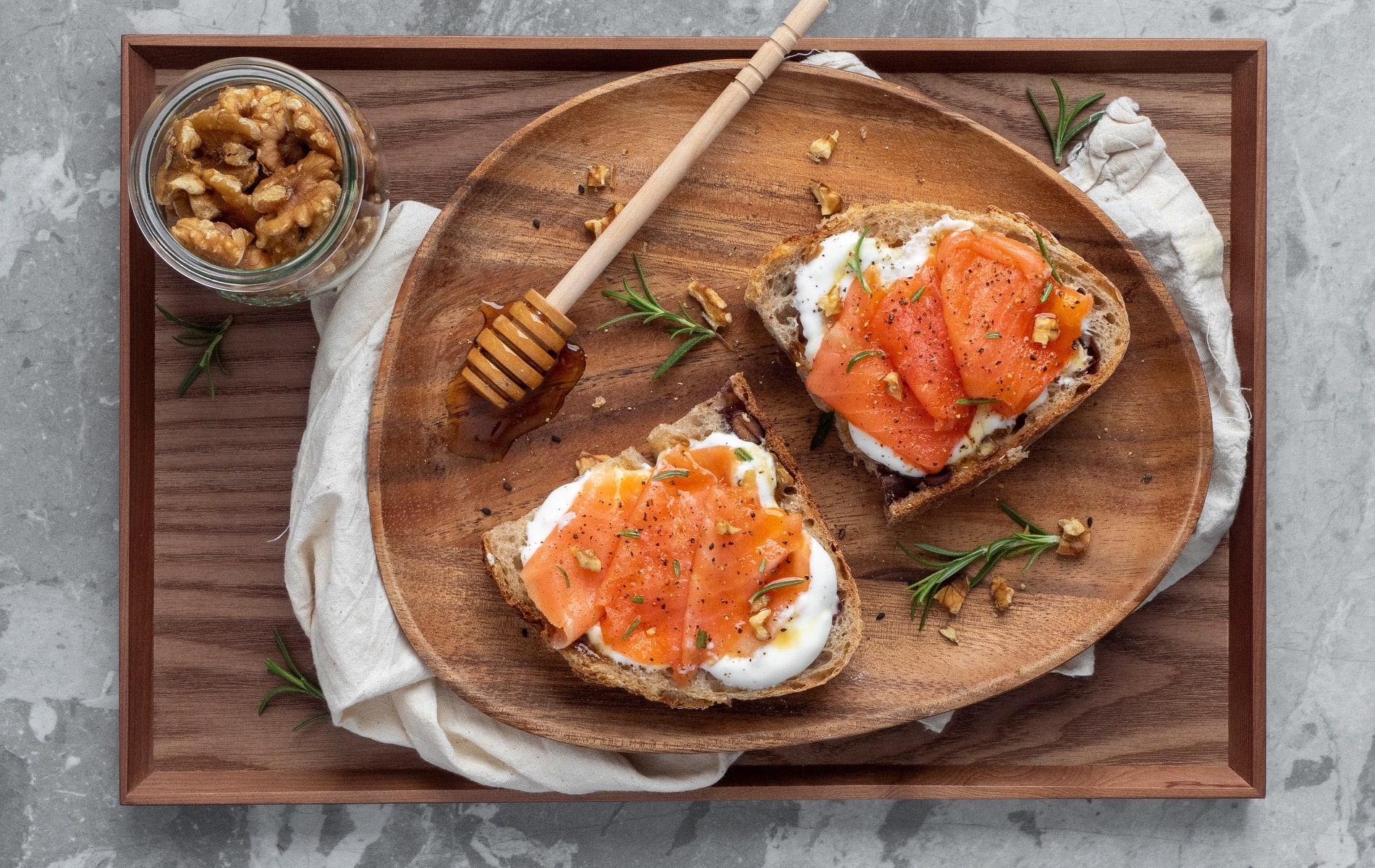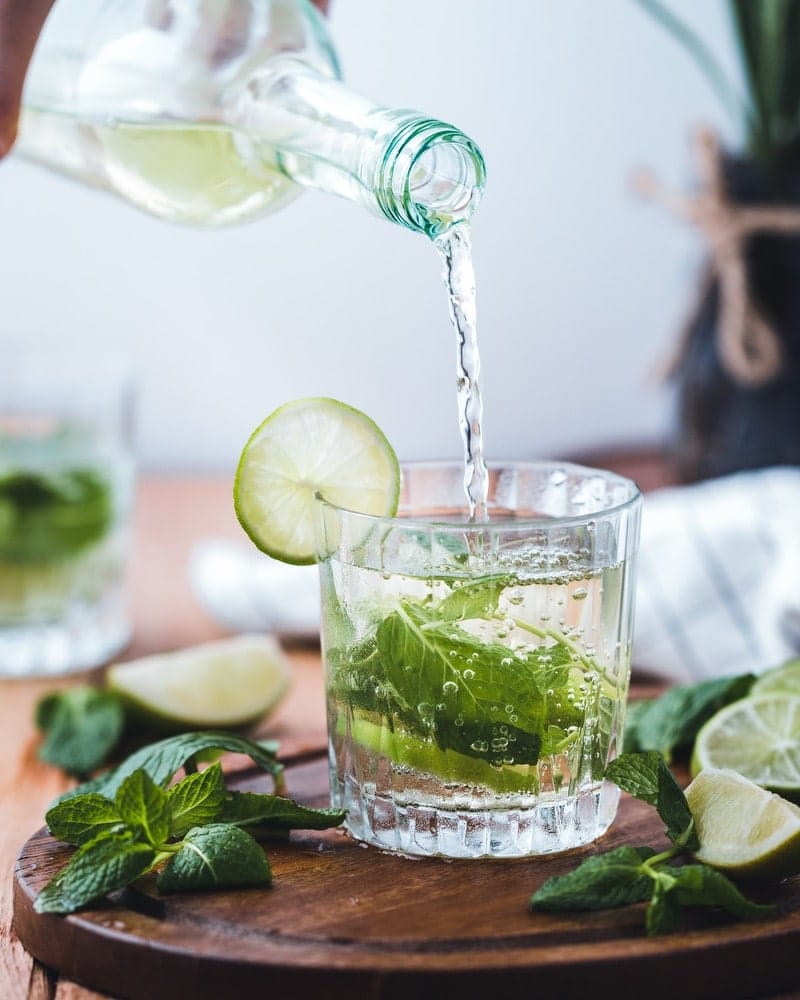
viemagazine-HERO3-min
Omega-3 fatty acids found in fish and walnuts can boost brain health.
Mind-Blowing Benefits of Anti-Inflammatory Nutrition
By Lindsay Tobias, Keep Your Plants On
Most people think their food can affect superficial things like their weight, their workout, and maybe their energy. But what if I told you that the foods on your plate are influencing your genes, your mental health, your anxiety, the quality of your skin, your digestion, the ache in your joints, the way your hair grows, the breeziness of your menstrual cycles, your rate of aging, your resilience and immunity, the levels of inflammation in your body, and your risk for chronic disease? Every nutrient packed into supplement bottles at your local health store can be found in a more affordable, digestible, and available form through real foods in the perimeter of your grocery store. Yes, it is that powerful; let me prove it to you.

Lindsay Tobias, certified health coach and founder of Keep Your Plants On
First, what does anti-inflammatory mean?
Anti-inflammatory nutrition means eating a majority of bright, colorful, whole foods that fight free radicals or oxidative stress in the body. Free radicals are your body’s immune response to foreign invaders, and an overload of these free radicals is called oxidative stress. This overload is due to high stress, a blood-sugar roller coaster, highly processed foods, medications, smoking, toxins (in our air, food, home, and water), sluggish detoxification pathways, and more. Inflammation plays a huge role in developing chronic and degenerative diseases, DNA damage, cell damage, premature aging, and more—but I promise there is good news.
The role of food starts to come into focus when you realize how deeply tied your health is to your gut:
- 70 percent of your immune system is found in your gut.
- 90 percent of your serotonin (your happy chemical) is located in your gut, which is why nutrition can profoundly impact our mental health.
- Often, we can see the state of our gut on our largest organ, our skin.
- Hippocrates said it best: “All disease starts in the gut.”
90 percent of your serotonin (your happy chemical) is located in your gut, which is why nutrition can profoundly impact our mental health.
Fruits, vegetables, beans, proteins like eggs, poultry, fish, and meat, herbs and spices, and healthy fats like nuts, seeds, high-quality oils, avocados, and coconut are high in vitamins, minerals, and antioxidants. These are proven to fight inflammation in our bodies, making us more resilient. Every fruit and vegetable readily accessible in your grocery store is infused with phytochemicals (plant chemicals) that our bodies utilize to heal, regenerate, and protect our cells from damage. One of the most significant benefits of eating radiant, living foods like fruits and vegetables is the welcomed increase in fiber. Fiber is found in almost all natural foods (fruits, vegetables, whole grains, beans, nuts, seeds) and helps slow the absorption of sugar, keeping your blood sugar and energy levels from spiking and crashing all day. It also adds bulk to your stool and keeps your bowel movements regular (a minimum of one to three per day!), lowers cholesterol levels, and is associated with a reduced risk of all cardiovascular diseases and cancers.
You know that expensive retinol skin-care serum that makes claims to increase your radiance? You can find those same nutrients on your plate. Bright yellow, orange, and leafy green foods like sweet potatoes, carrots, squash, broccoli, and cantaloupe are high in beta-carotene, which converts to vitamin A (retinol) in the body. Beta-carotene gives a brighter glow to your skin, boosts immunity, and helps your vision.
Olive oil contains a polyphenol called oleocanthal that fights inflammation, cancer, and Alzheimer’s, lowers blood pressure, and strengthens the heart. Oleocanthal is similar to the active ingredients in ibuprofen, and researchers have found that a serving of extra-virgin olive oil can have the same pain-relieving effects as ibuprofen without any side effects.
Brain-boosting omega-3 fatty acids found in fish like salmon, tuna, mackerel, cod, herring, and sardines, or in walnuts, chia, flax, hemp, and pumpkin seeds, are inflammation-fighting powerhouses. Studies have shown that these foods can lower blood pressure, cholesterol, cancer risk, and cardiovascular disease risk, increase liver detoxification, and nourish the brain by increasing focus and cognition and decreasing adverse mental health outcomes like depression and anxiety. In fact, a 2010 study showed that omega-3 fatty acids fight pain more effectively than NSAIDs (Aleve, Advil, ibuprofen).

Adding a sprig of fresh mint to your water or tea could boost your antioxidants and decrease nausea.
Herbs are the anti-inflammatory heroes that most of our culture has forgotten. Leafy herbs like oregano, parsley, basil, and mint and spices like turmeric, cumin, ginger, peppermint, echinacea, cinnamon, and chili powder can contain up to 200 percent more antioxidants than fruits and vegetables. Eastern cultures have long tapped into the medicinal properties of herbal remedies, using ginseng to boost immunity, brain function, and energy, elderberry to relieve headaches and fight viral infections, and ginger to boost immunity, aid digestion, and fight nausea. Our fast-paced Western culture no longer leans into these remedies, but they are still accessible and offer us back the reins on our health. In addition to the life-altering powers of these medicinal herbs, they genuinely make food taste delicious.
Eastern cultures have long tapped into the medicinal properties of herbal remedies, using ginseng to boost immunity, brain function, and energy, elderberry to relieve headaches and fight viral infections, and ginger to boost immunity, aid digestion, and fight nausea.
Let’s take this concept and fit it into your life:
Shop the perimeter. Every time you go grocery shopping, make a goal of shopping along the edge of the store first. Real, anti-inflammatory food has a shorter shelf life because it does not contain preservatives or stabilizers, so you will usually find it in the refrigerator or freezer sections.
Get colorful and creative. Can you make a goal to have at least one colorful fruit or vegetable in every meal? Maybe you can change how you season your veggies by adding more herbs and spices—chop some basil to top your pasta, sprinkle cinnamon in your coffee, or add mint and turmeric to your smoothie! Drizzle your salad with high-quality olive oil, or make a standing tradition of having Salmon Mondays or Tuna Tuesdays to build a healthy routine.
There are a million ways to personalize and enjoy your food, so start where you are and get creative!
— V —
Keep up with Lindsay for more wellness tips on her Instagram @keepyourplantson, or visit her website HowtoKeepYourPlantsOn.com to see how you can work with Lindsay through her personalized mind and body health program.
Share This Story!
KEEP UP WITH THE LATEST STORIES FROM VIE
















































































































































